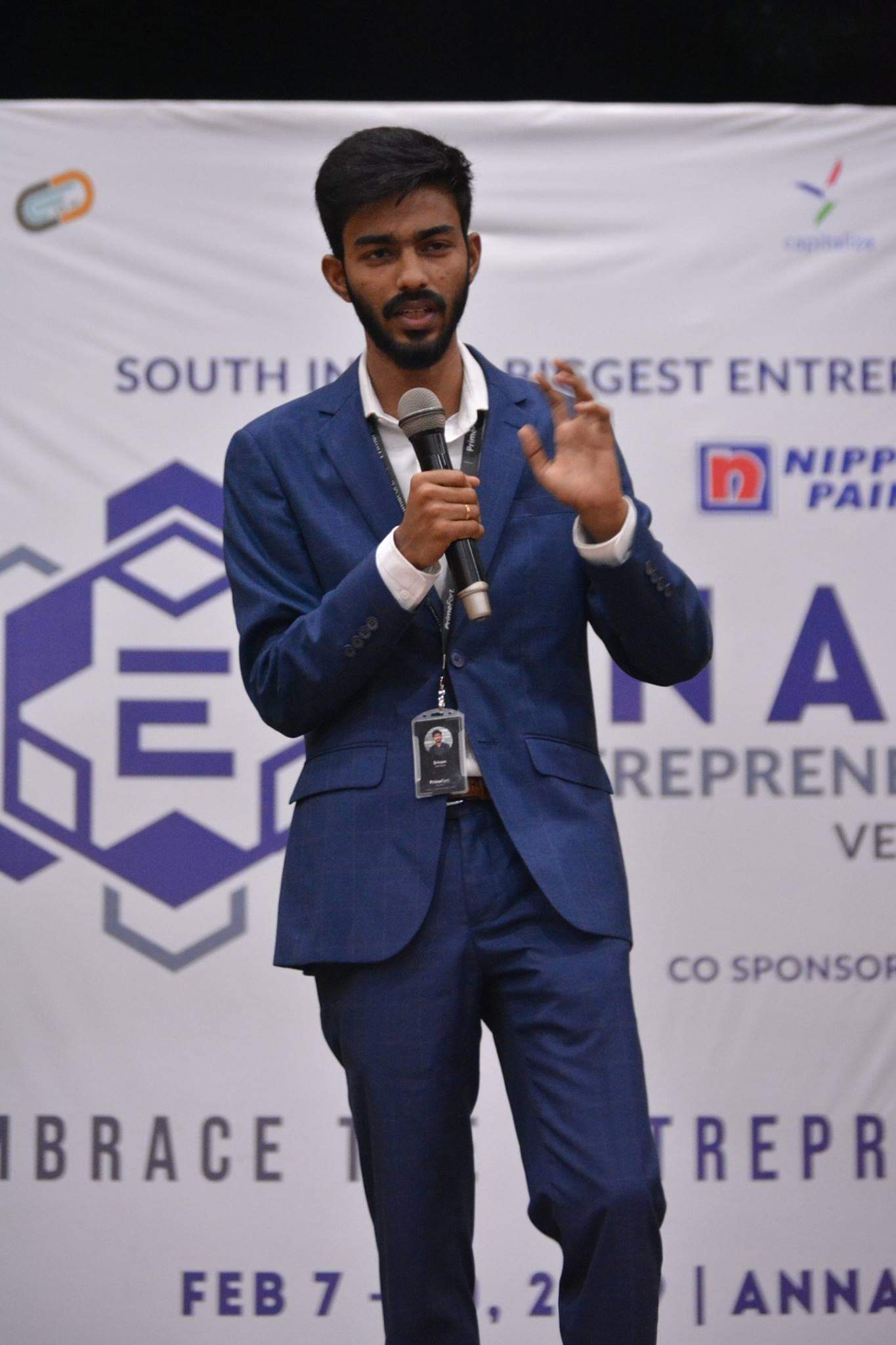Sriram is a cyber security researcher and runs a cyber security company called PrimeFort based in Chennai. PrimeFort takes care of cyber security issues for many enterprises and runs many organisations which study cyber security in depth.
INTERVIEWER: Balaji P.S.
INTERVIEWEE: Sriram

GT: What sparked your interest in cyber security?
Sriram: Cyber security is a field which is evolving every day, it’s not like other fields. You would think that a software, computer or a network is secure but within the next hour, someone might have exploited it. This is a field in which you need to update yourself day by day and hour by hour, and this will make you think you don’t know anything about cyber security, but it makes you want to learn more about it.
GT: How were you first exposed to the field of cyber security?
Sriram: I actually first entered this field in 2008, before that I was into electronics and automobiles. And then after a couple of incidents, I found this field very appealing. This was the perfect field; it makes you spend so much time but still be productive, and you can make a living out of it. And therefore, I chose cyber security.
GT: So where do you think we can draw a border between ethical hacking and malicious hacking?
Sriram: I would say there is nothing ethical at all in this field. Well, l mean, there is a little ethics in this field, but the people who would have started out of passion, might have done some illegal things such as testing websites they didn’t have access to. You have to understand, even installing pirated software or giving a link to someone to download something illegal is also, well, illegal. So there is nothing purely ethical here per se, so you cannot do something which is completely ethical. This is because hacking can be compared to teaching someone about how to use a knife, and they could either use it to kill someone, or they can use it to carve something beautiful. Ethical hacking comes into picture when say, currently there is an enterprise security crisis. So, the enterprise itself asks us to test them. This is when we can use hacking ethically.
GT: Can you tell us a bit more about your company Primefort?
Sriram: We basically take care of the security of enterprises. We take care of their web applications, networks, mobile applications, and the other technically related things. We have a bunch of hackers on site, and whenever a company approaches us, we try to hack them and find bugs in their web applications and tell them remedial measures to help in debugging.
GT: When you introduce yourself as an ethical hacker, what is usually the first response you get in general?
Sriram: Well, one of the first responses I usually get is: “Bro, can you help me hack into someone’s account?” and the second thing is usually “Bro, can you teach me hacking?”. This is actually something you probably cannot teach. This is something that you will have to learn by yourself because you need experience with computers and all.
GT: What kind of tips would you give to a person who wants to learn hacking from scratch?
Sriram: So first, you must learn the basics of computers and start learning programming languages. Once you know how to build something, you should also know how to break it as well. You will have to make a couple of sacrifices in order to achieve this. You will need to spend a lot of time each day learning about it for more than a year to really understand what is going on. You can Google stuff, watch videos on YouTube about the basics like how to hack Facebook or something and start to understand what exactly is going on behind the screen. This mostly depends on your interest. Not everyone can become a hacker easily, it requires dedication and passion towards the field.
GT: When you are in an intensely competitive field like cyber security, people tend to look for qualifications. Being a college dropout, has this ever been a hindrance of any sort to you?
Sriram: Basically, I started working for companies when I was in 11th standard and I was working for a company for some 2 months and then I resigned. Then I got involved in bug bounty programs which was extremely rewarding. A degree was something that never really excited me. I don’t see anything in it. What I’m doing is something that requires learning day by day and I thought instead of investing 2 lakhs in a degree, I could do something more. While it was not something I did intentionally, I started attending many conferences continuously, and hence started skipping classes for long stretches that I lost interest in college completely. Still you do face problems being a dropout, but you can overcome it with skill and talent.
GT: Finally, how do you feel about addressing Anna University?
Sriram: Well, I am excited about the fact that I am addressing Anna University. I’ve been to 100+ colleges, not sure, but this is the second time here and I am happy to be here.
GT: Thank you very much for sharing some useful information with us today.
The Guindy Times wishes Sriram all the very best for all of his future endeavors.





